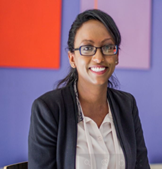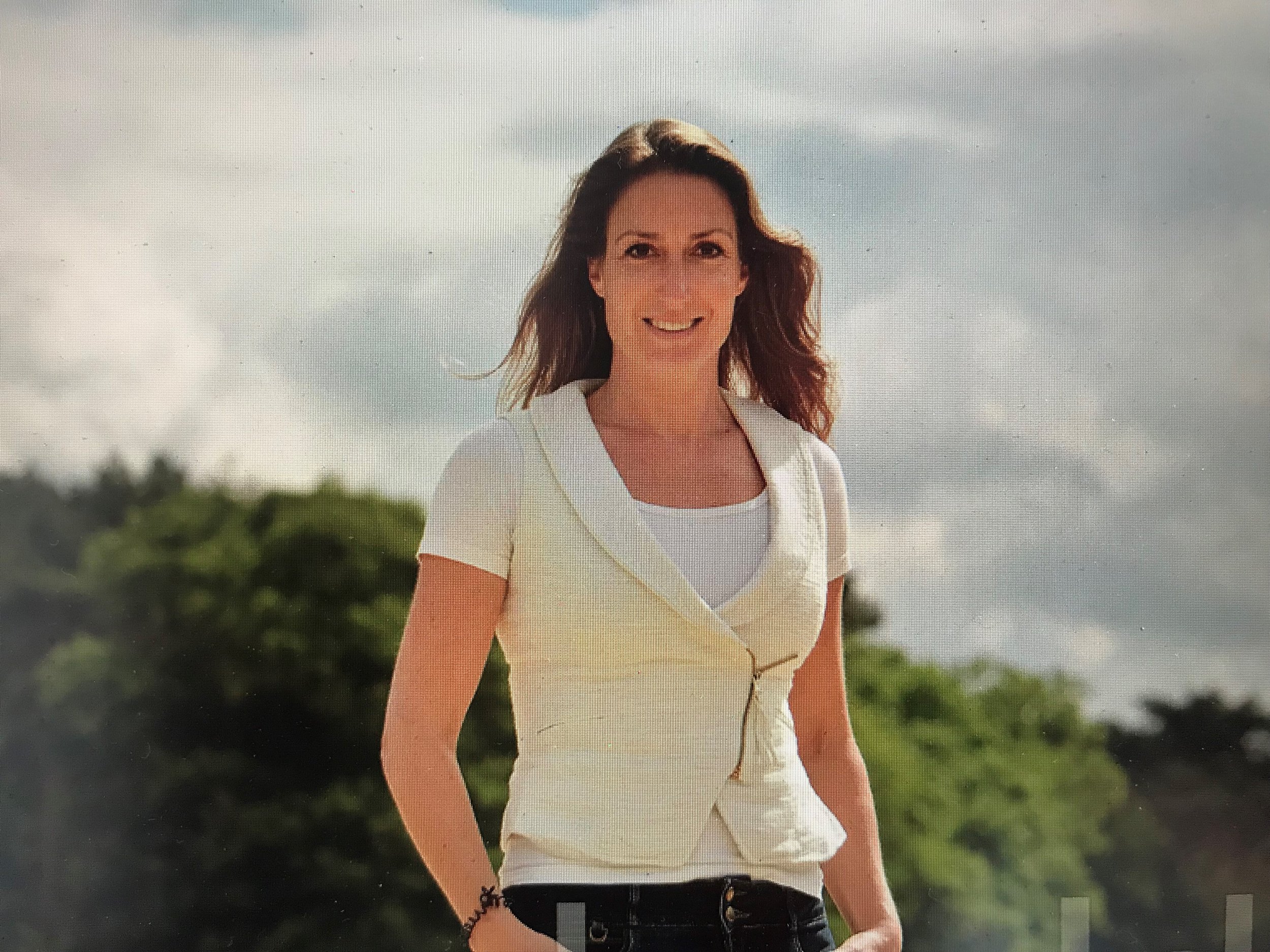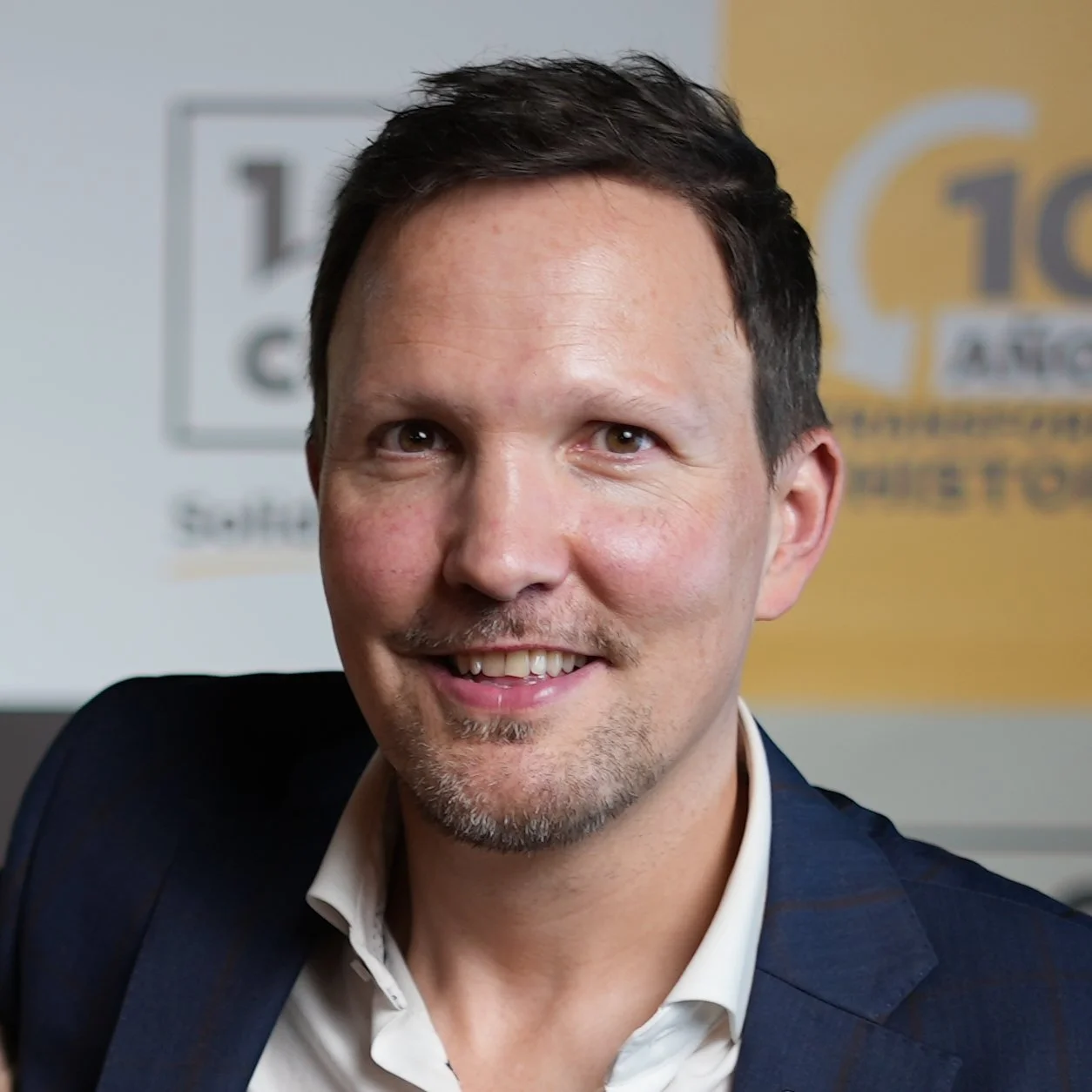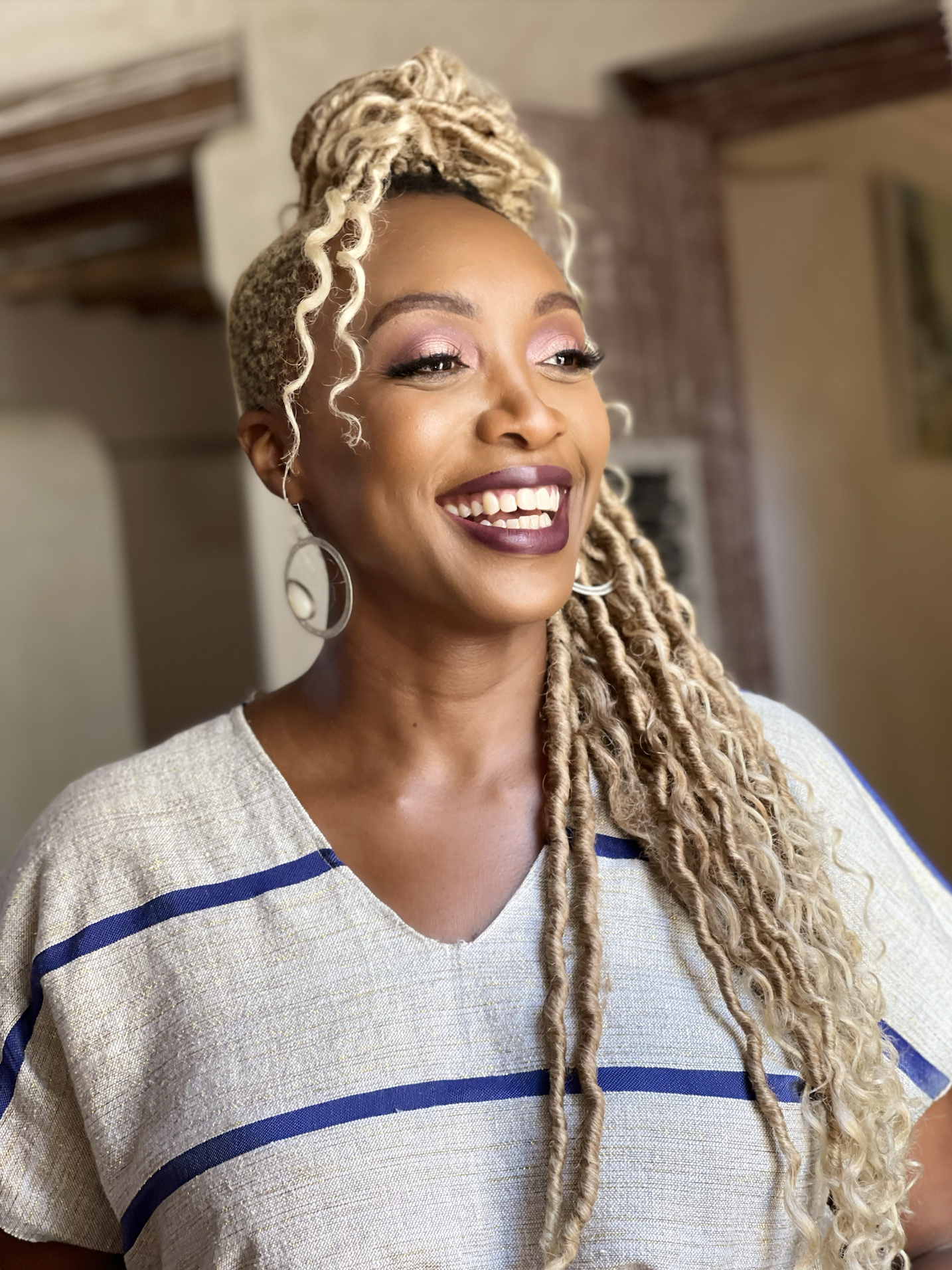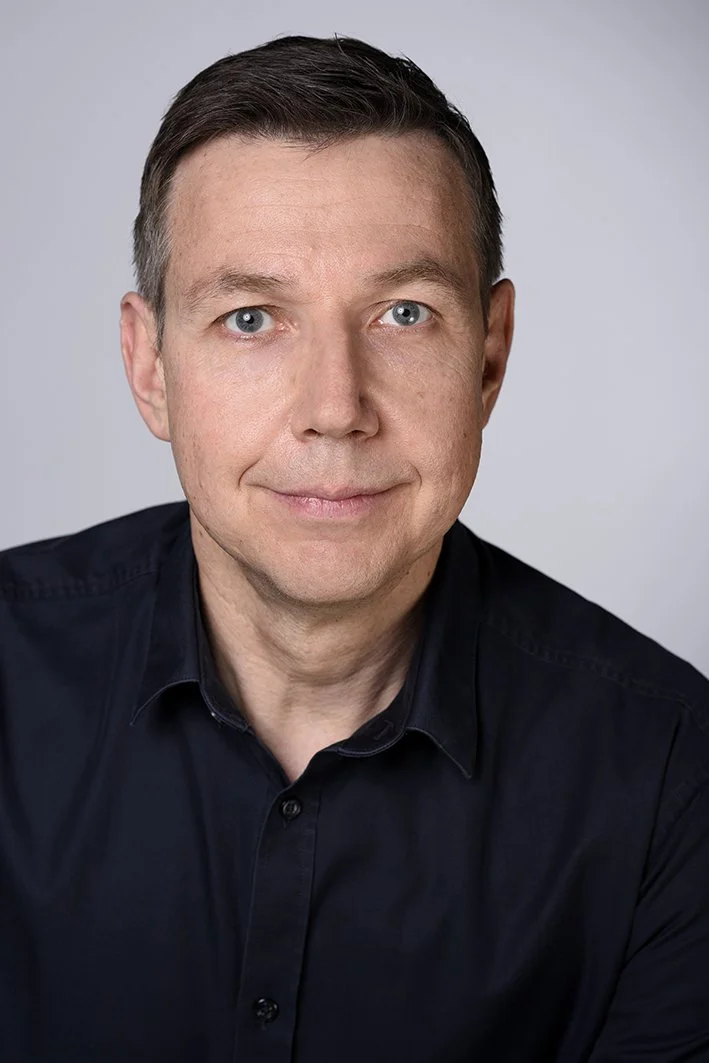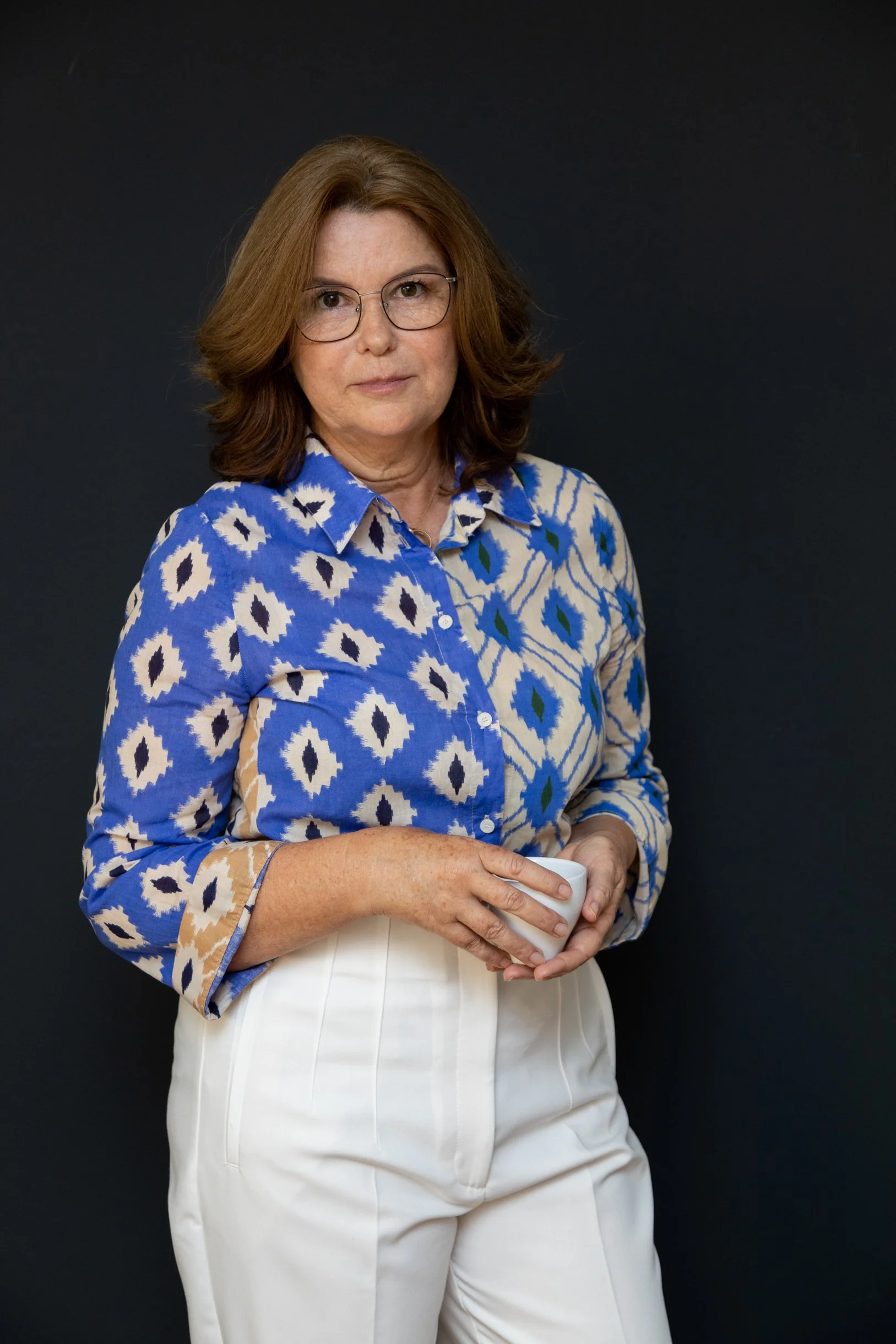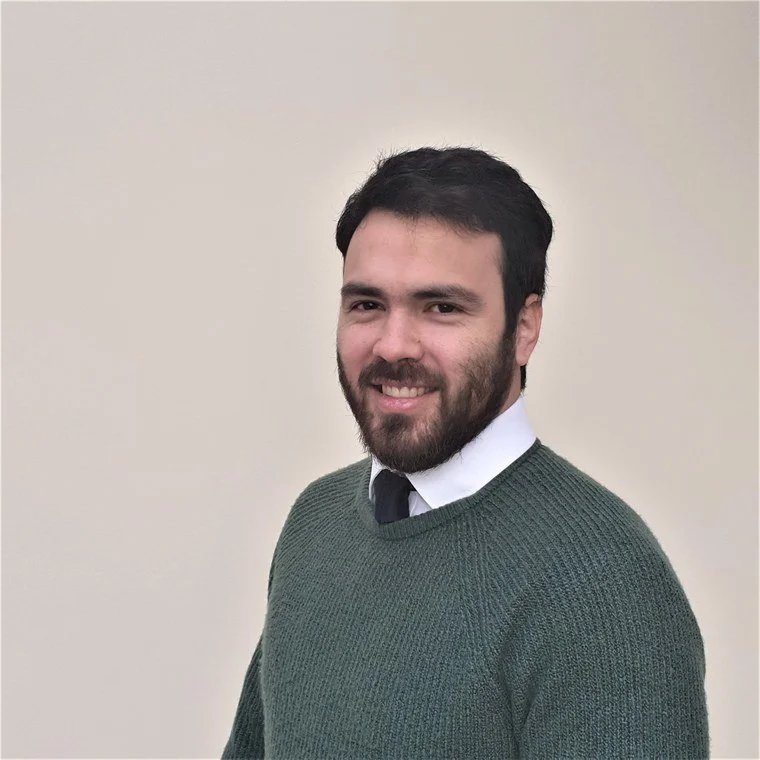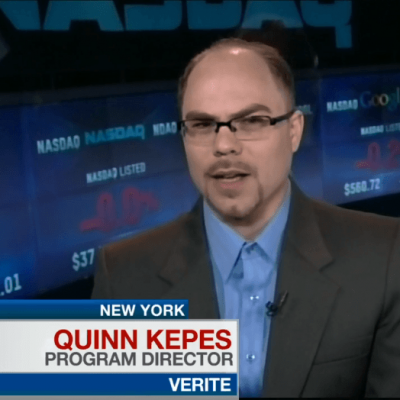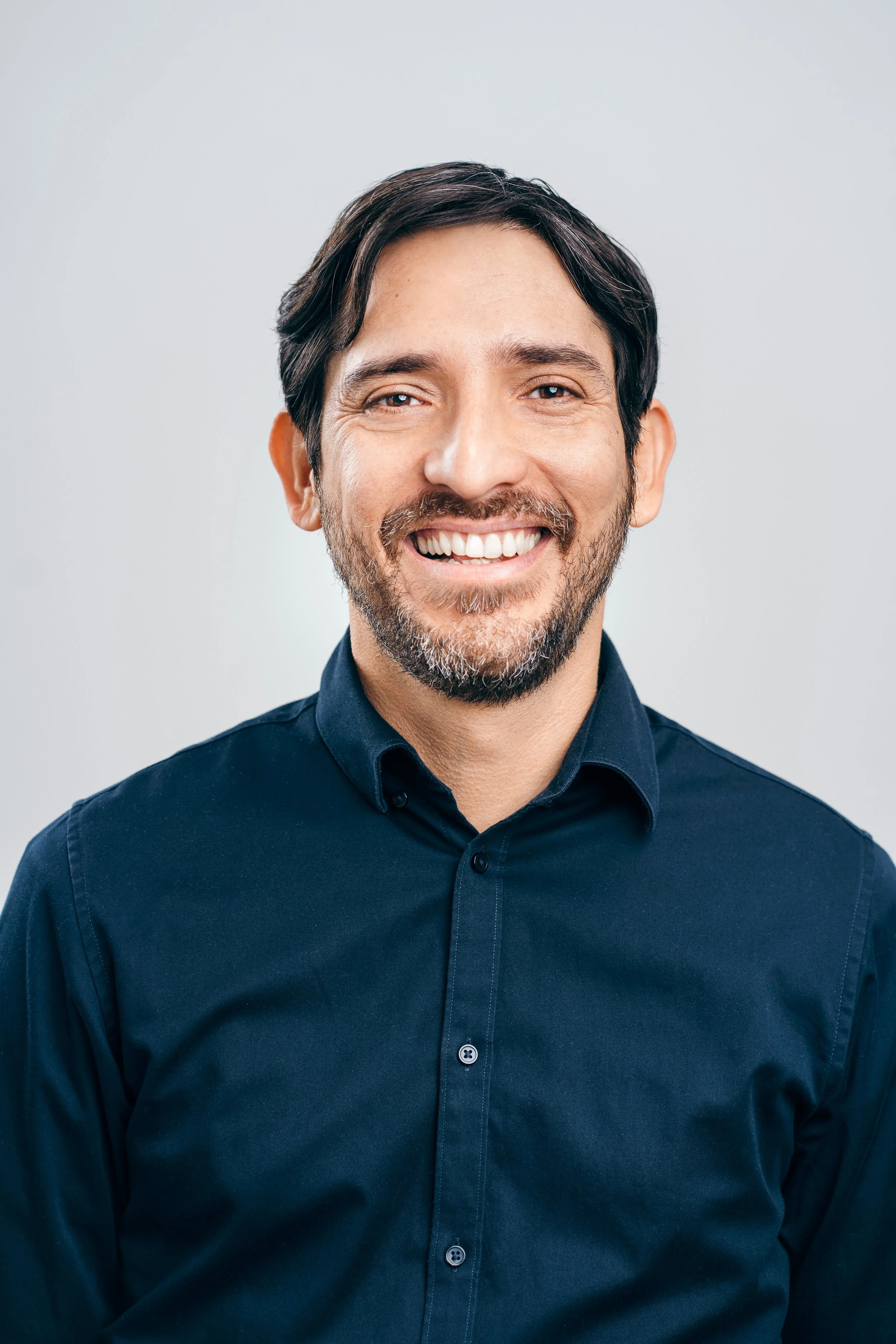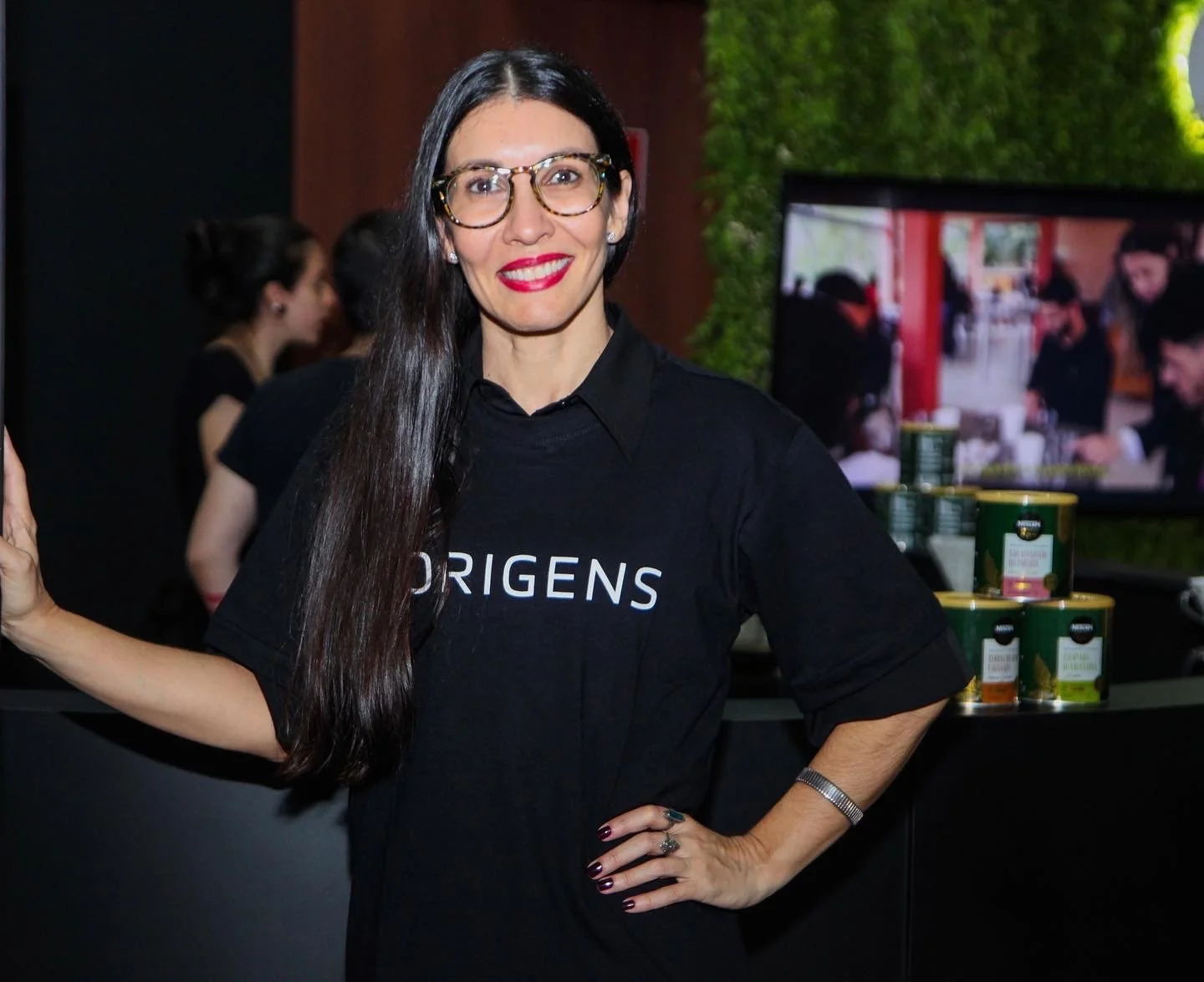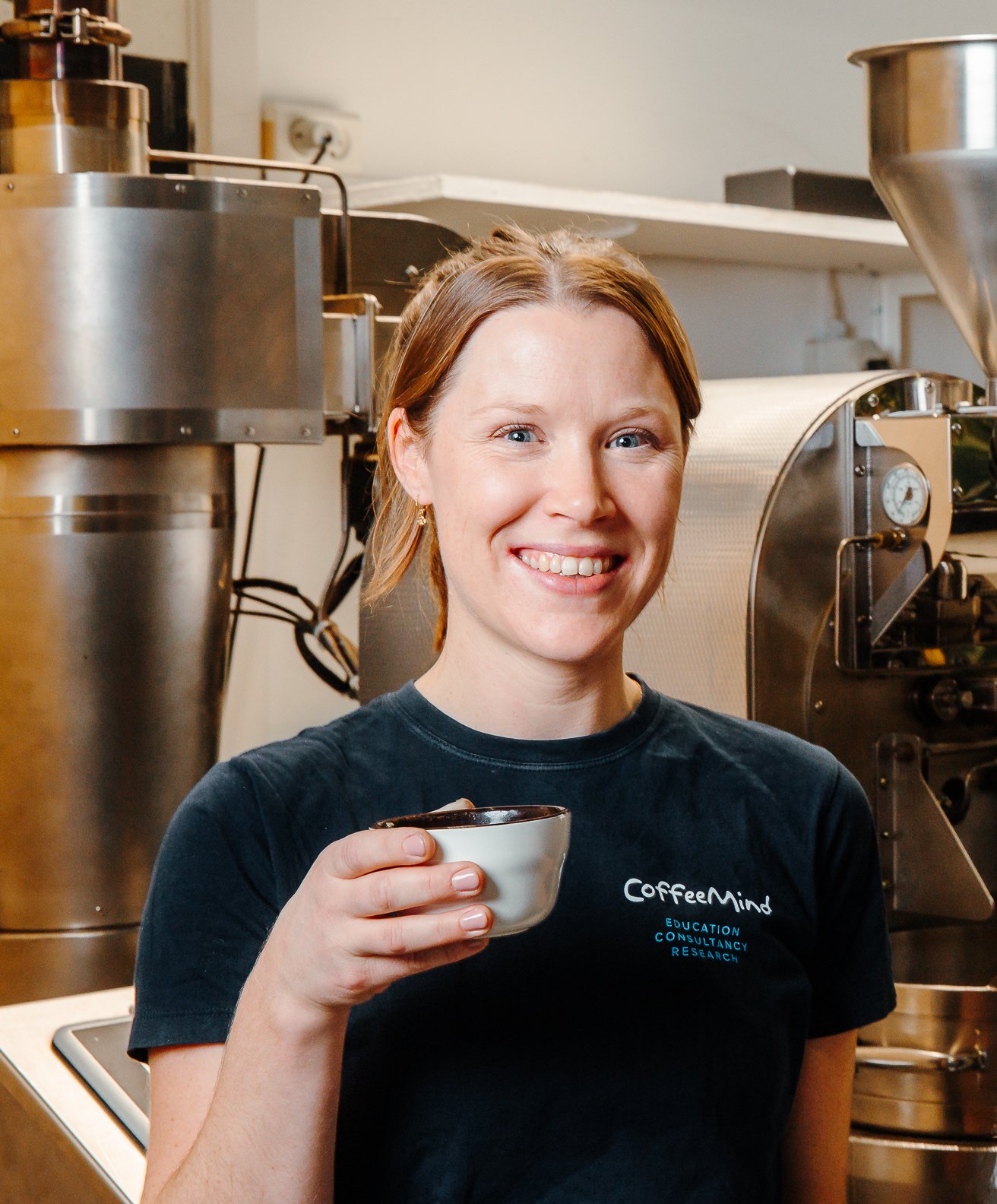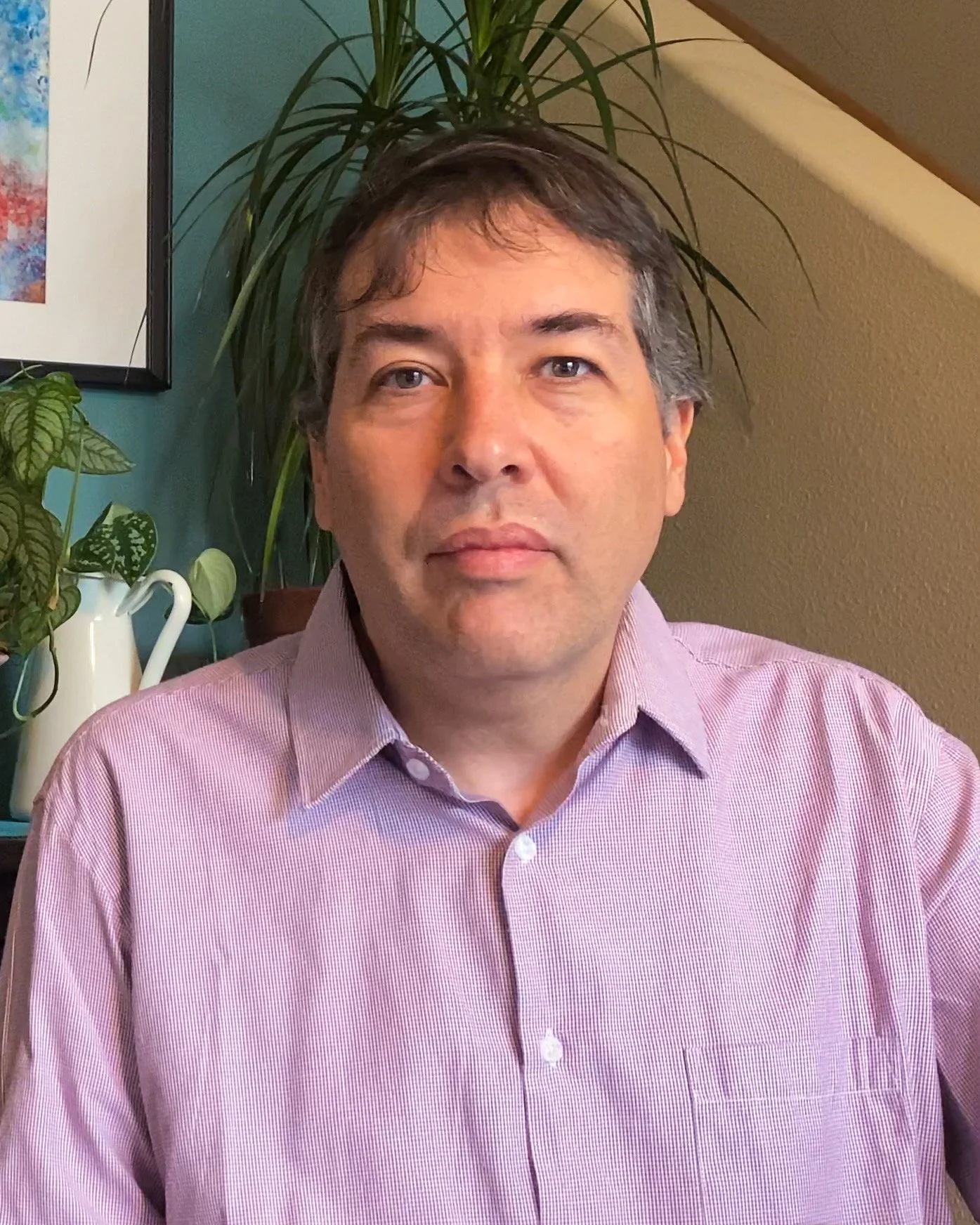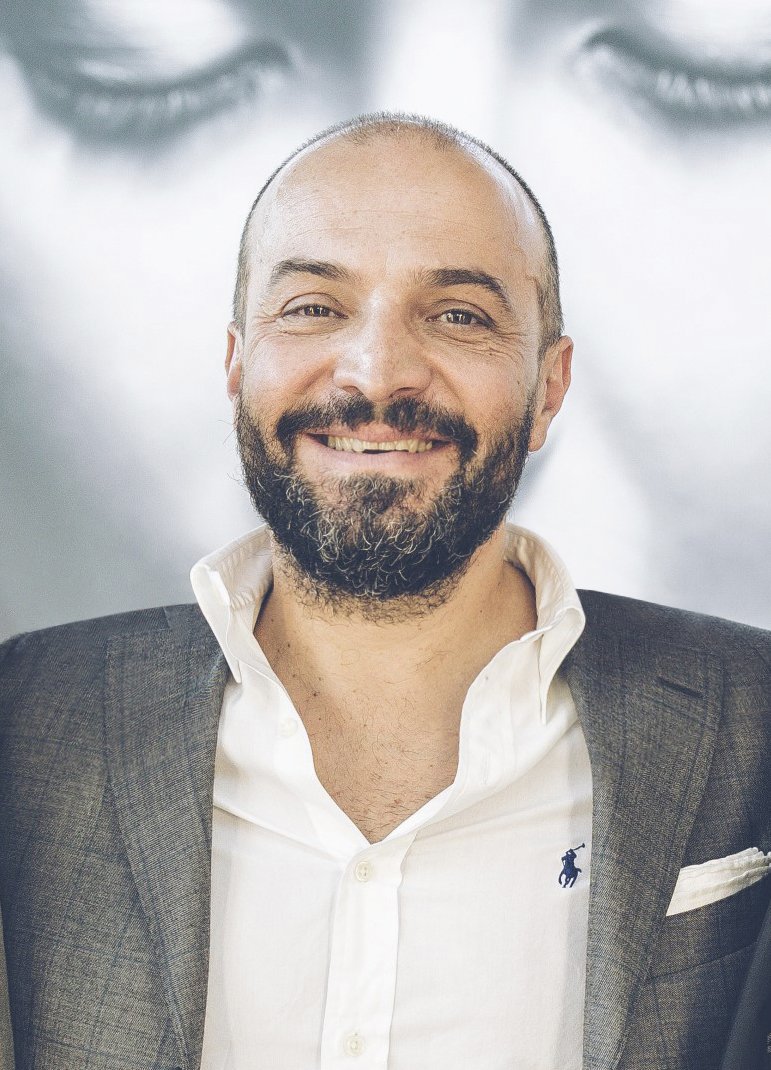Re-positioning Ethiopia’s Coffea arabica for the Global Premium Coffee Market
Lecture Description
Coffee is the most internationally traded agricultural produce, with millions of smallholder farmers depending on it for their livelihoods.
Coffea arabica, the most economically significant coffee species in terms of volume of production and trade, is native to Ethiopia. It’s wild populations, forest coffee, have significantly higher genetic diversity compared to cultivated variants, which has implications for disease resistance, improved yield, climate change resilience, among others.
Despite this rich biodiversity, with its economic importance for the global coffee market, Ethiopia’s forest coffee is yet to attain premium coffee status. The result is that small-scale coffee producers in Ethiopia, who are often among the poorest in the country, earn below farmgate prices for what is indeed premium coffee.
Coffea arabica presents an economic and conservation opportunity for Ethiopia and globally, with the right investment. Partnerships for Forests and partners have been working to rebrand Ethiopia’s forest coffee into a premium brand and help small-scale coffee producers harness the potentials of its biodiversity to expand their coffee businesses.
The panel will discuss implications of the biodiversity of Ethiopia’s Coffea arabica for Ethiopia and the global coffee market, and how Partnerships for Forests has successfully positioned it for the global premium coffee market.
Date: Friday, June 23, 2023
Time: 3:30pm - 4:30pm EET
Location: Lecture Room 1
Presenters:
Feker Tadesse
Regional Programme Manager, Partnerships for Forests, Palladium International
Feker Tadesse is the Regional Programme Manager at Partnerships for Forests. Feker manages the East Africa portfolio across 5 countries. She has over 10 years of experience in sustainable land use, access to finance and food security. Feker holds a B.A in International Relations from Mount Holyoke College and an M.P.A from Princeton University.
Raffael Fondacci
Project Manager, GIZ Deutsche Gesellschaft für Internationale Zusammenarbeit GmbH
Raffael Fondacci is a mechatronics engineering graduate working as a project manager for GIZ InS for the past 4 years and based in Ethiopia.
In his position he manages a project in the Ethiopian Forest Coffee sector where he works with 17,000 smallholder farmers under 58 Cooperatives to strengthen the supply chain.
The project works to provide technical support, certification, traceability, capacity building and market linkage with the aim of incentivising the farmers to protect the forests from which they harvest the forest coffee.
Raffael enjoys working in the development sector where he can deliver real impact on the ground which is a great source of motivation. Outside of work, Raffael enjoys travelling, horse-riding and basketball.
Coffee & Carbon Emissions: a (net) zero sum game in the coffee business?
Lecture Description
Net zero commitments have steeply increased in recent years among key businesses in the coffee sector. Climate concerns are picking up as drivers behind purchase decisions. At the same time, carbon markets have great potential for financing climate action on coffee farms. However, offsetting and insetting schemes are under increased scrutiny to deliver concrete results and real value for the farmers in Scope 3. In this panel, we discuss the advantages of both carbon reduction approaches for the coffee supply chain. We will zoom in on the current challenges that companies and producers face to turn carbon reduction strategies into a non-zero sum game with winners at both ends.
Learn from concrete examples on the steps that interested coffee businesses can take to minimize costs of carbon schemes and maximize value for their coffee farmers.
Date: Friday, June 23, 2023
Time: 15:30pm - 16:30pm EET
Location: Lecture Room 2
Presenters:
Isabel van Bemmelen
Sr Business Developer & Head of Insetting, Rabobank Acorn
Isabel van Bemmelen Isabel joined the ACORN team of Rabobank this March, to focus on insetting. Before starting at the ACORN team Isabel has been the Managing Director of Progreso Foundation since 2017, supporting coffee and cocoa producer organisations with their sustainable development. She was the driving force behind the development of Beyco, ‘Beyond Coffee’ a worldwide coffee trading platform using blockchain technology. Before joining ACORN, Isabel already worked over 10 years for Rabobank and Rabobank Foundation, managing the Latin America loan portfolio including trade finance for many coffee and cocoa producer organisations. She has extensive knowledge of microfinance, financial analyses, coffee market, price risk management, organisational development and productivity/quality increase. She loves cupping coffee and facilitating trade connections.
Joel Brounen
Country Manager Colombia, Solidaridad
Joel Brounen is Country Manager in Colombia, leading the organization´s work on the ground to measure carbon emissions, develop scope 3 reduction scenarios and elaborate investment plans for farmers, traders and roaster. He is one of the pioneers behind the ACORN platform, successfully developing the algorithms and data sets for this satellite-based trading platform and the current scaling strategy with partners. Currently, he is involved in multiple inset and offset projects in the agriculture sector. Joel has a Master Degree in Sustainability Leadership of the University of Cambridge and Master Degree in International Economics of the University of Utrecht.
Niels Haak
Director Sustainable Coffee Partnerships, Conservation International & Sustainable Coffee Challenge
Niels Haak is Director Sustainable Coffee Partnerships at Conservation International, a globally operating non-for profit working to ensure a healthy, more prosperous planet that supports the well-being of people. In his role, Niels works actors from across the coffee sector to co-develop programs and solutions that will drive sustainability throughout the coffee supply chains and address critical challenges within coffee producing landscapes. Niels leads Conservation International’s efforts to convene and facilitate the Sustainable Coffee Challenge - a dynamic and diverse coalition of partners from across the coffee sector dedicated to making coffee the world’s first sustainable agricultural product.
Designing Community Cafe’s that honor local (CULTURAL) Values.” - A case study from Lamu Island - the oldest and best preserved Swahili settlement in East Africa - a UNESCO world heritage site
Lecture Description
This presentation/lecture will look to cover the following points:
The importance of honoring local culture when creating a community space
Aspects one should consider around preserving heritage and celebrating it ranging from architecture, local ingredients that one can incorporate into the cafe menu, the hiring process i.e. creating a team for the cafe and how the business can give back to the community especially when introducing something so new ..i..e specialty coffee culture
Community engagement
Researching local culture
Selling your business to the local community - (community buy in)
Date: Friday, June 23, 2023
Time: 2:15pm - 3:15pm EET
Location: Lecture Room 1
Presenter:
Vava Angwenyi
Founder & Chief Coffaholic, Gente Del Futuro Ltd & Vava Coffee Ltd.
Vava - a Sustainable Farming advocate, Author - Coffee. Milk .Blood and business owner has created a sustainable and ethical coffee brand that sources coffee from farmers in Kenya and around the region. She is also the Co-Founder of Gente Del Futuro and proprietor of the Cafe and Coffee School La Dulce Toro in Amu - Lamu Old Town off the Kenyan Coast.
With her B- corp certified social enterprise business the company exports coffee, roasts for local consumption and consults on coffee value chains, the organisation aims to contribute to better future prospects for coffee communities and the industry as a whole. The company ensures sustainable livelihoods for the people and communities in which it works. Vava’s vision is to challenge the status quo and promote positive social disruption within the coffee industry. This vision comes from an inborn passion for transformative change and a drive to promote the sustainable production of coffee by tracing the production of high quality coffee beans to the independent smallholder coffee farmer, who works day in and day out, against major obstacles and with meager resources to produce some of the world’s best tasting coffees, often without an understanding or appreciation of the final fruits of their labor.
Understanding Quality: the SCA's new Coffee Value Assessment
Lecture Description
For many years, specialty coffee has been defined by a point score, or a number of defects, or an aspirational goal. For the past three years, the Specialty Coffee Association has undertaken a project to develop a more rigorous way to define and measure specialty coffee quality, based on sensory science, economics, and feedback from the coffee community. In this lecture, we will summarize the work of the project so far and present the new cupping and quality assessment system. This is an essential update for cuppers, coffee buyers, producers, traders, and anyone interested in how coffee quality is understood and valued.
Date: Friday, June 23, 2023
Time: 2:15pm - 3:15pm EET
Location: Lecture Room 2
Presenter:
Kim Elena Ionescu
Chief Sustainability and Knowledge Development Officer, Specialty Coffee Association
Kim Elena Ionescu is the Chief Sustainability and Knowledge Development Officer for the Specialty Coffee Association (SCA), where she develops strategy and leads action on behalf of coffee-centric businesses and organizations both large and small in the United States, Europe, and beyond to tackle the challenges coffee faces now and in the future.
Prior to joining the association, Kim spent a decade buying coffee and creating and directing sustainability at Counter Culture Coffee in North Carolina, where she resides with her husband and two daughters. And although these days she is more likely to be found behind desks and podiums than cupping tables and espresso machines, Kim believes that innovation and collaboration across the coffee value chain are critical for our community to thrive.
Physical and sensory evaluation of experimentally processed coffees
Over the past years, experimentally processed coffees have gained extreme popularity with coffee professionals and consumers. As the demand grows, more farmers started to experiment with new processing techniques, but they don’t always have access to the right resources which can lead to nonuniform cup quality, over fermented notes, and even cup defects. During this workshop, we will discuss the evaluation of these experimentally processed coffees from a green coffee buyer company’s perspective. Attendees will have the opportunity to examine experimentally processed green coffee samples and learn about the effects that the processing has on the structure and shelf-life of the beans as well as identifying positive characteristics and negative flavors in the cup during a tasting session. We will discuss the challenges of creating special processing methods based on clients’ request and possible ways of mitigating risk for producers.
Room: Room 1
Pricing: €125.00
To book your place in this Workshop, head to the World of Coffee Registration Portal and add a session to your booking before checkout. Already registered? Simply enter your registration key to access your booking and add other paid events to your badge.
Instructors:
Franciska Apró
Quality Control Coordinator, Sucafina Specialty Europe
Franciska Apro has over 10 years of experience in specialty coffee. She worked as a barista, barista trainer, quality manager and production roaster before joining Sucafina Specialty Europe in January 2020 in the capacity of Quality Control Coordinator. In 2021, she acquired her Q Arabica Grader certificate. Over the past 3.5 years she has graded, roasted and cupped thousands of coffee samples from various origins. Thanks to Sucafina’s vertically integrated supply chains, she has had the opportunity to visit numerous coffee origins and learn more about farming and processing trends. She regularly provides cupping feedback and discusses quality with suppliers, including many experimentally processed lots.
Ermanno Perotti
Trainer, Sucafina Specialty
He studied Developmental Economics and began by designing sustainable development models for small coffee producers in Central & South America and in Southeast Asia. His interest in effectively integrating small producers into global coffee value chains led him to focus on the sensory and quality aspects of coffee. At the heart of what he does, coffee processing plays a special role. He gained knowledge by running wet mills in Central America and South East Asia, all supported by academical studies. Currently, he works as Global Origins Innovation in Sucafina and as a CQI instructor and SCA trainer.
Hot vs. Cold – a comparative analysis of controlled hot and cold water extraction
In this workshop, designed by Toddy, LLC and Accademia del Caffè Espresso (the cultural hub of La Marzocco), we will explore cold brew extraction in comparison with hot water extractions. We will experience the colorful world of coffee through a wide range of brewing variables such as grind size, brew ratios, turbulence, etc. Participants will experience comparative cuppings focused on the sensory comparison of cold brew and traditional brews (french press, filter, espresso). The discussion will center on the different factors that impact extraction. Participants will understand how to adapt and experiment with brewing parameters in order to bring out the maximum flavors of any coffee.
To book your place in this Workshop, head to the World of Coffee Registration Portal and add a session to your booking before checkout. Already registered? Simply enter your registration key to access your booking and add other paid events to your badge.
Price: €125.00
Room: Room 2
Instructor:
Nora Šmahelová
Coffee Education Leader, Accademia Del Caffè Espresso / La Marzocco
Nora Šmahelová is the Coffee Education Leader at Accademia Del Caffè Espresso - the cultural hub of La Marzocco. She has been working more than 20 years in the coffee business experiencing the fascination around this natural product not only from the perspective of a barista and competitor (German barista champion 2002) but also from the view of a green coffee sales person, coffeeshopowner and WCE representative. All these experience brought her to her current position at Accademia Del Caffè Espresso.
Holger Lente
Director of Brand Development, Toddy LLC
Holger Lente, Director of Brand Development at Toddy LLC, brings 20 years of experience in project management and business development in the food & beverage industry. A trained chef, bartender, and former coffee shop & bar/restaurant owner, he also has leadership experience in the hospitality industry. Holger is a certified barista and former SCA Authorized Trainer who lectures internationally on coffee shop management & beverage program expansion.
How the end consumer perceives the quality of aromas and flavors in a beverage and how extrinsic factors can affect this perception
Lecture Description
This study aims to investigate how the end consumer perceives the quality of aromas and flavors in a beverage and how extrinsic factors can affect this perception."
In this neurocience study, the initial objective is to investigate how consumers perceive the quality of coffee, as opposed to professional tasters. The second phase of the research focuses on exploring the impact of external stimuli on factors such as flavor perception and gastronomic pleasure associated with coffee
The research uses five technological devices simultaneously (Fixed Eye Tracking, EEG, AEF, GSR, and Mobile Eye Tracking) to collect and integrate data from different perspectives on the response of gastronomic consumers to obtain valuable emotional data for decision-making in a real consumption context.
The methodology of the study involved moving beyond laboratory settings and examining the real-world connection between stimuli and consumer perception of special and non-special coffee. To achieve this, the study was conducted in two different settings: a coffeLab and a restaurant.
The tasting panel included coffee consumers, professional cuppers, and individuals who do not typically enjoy coffee.
The findings were surprising and the researchers look forward to sharing them with the coffee community
Date: Friday, June 23, 2023
Time: 13:00pm - 14:00pm EET
Location: Lecture Room 2
Presenter:
Josiana Bernardes
Master in Food Technology and Nutrition, IDcoffeelab
Food and Nutrition Technologist
Research in food neuromarketing.
Collaborates with FusionLab Neuroscience and Neuromarketing, for the Food and Beverage area.
Last Research: "How consumers understand quality in coffee"
Scientific background in food science. Master in food technology and nutrition-University of Barcelona, expertise in food ISO. Sensory analysis. Master in water management and treatment-University of Alicante.
Founder of the Idcoffeelab academy - Total quality in coffee. As a coffee expert, she traveled around the world to select specialty coffees, giving courses and consultancies from production, sensory analysis and marketing.
Official instructor of the Specialty Coffee Association SCA. Trainer and advisor, advocating for equal opportunities and sustainability in coffee production and trade in producing countries.
As a Food and Nutrition Technologist, developed research on food quality and consumption. Professional experience in various food products and processes: dairy, dairy fermentation, coffee and cocoa. Experience in certification of ISO quality standards in food; organic wine.
Innovating for a Sustainable Future: How Farmer-Led Solutions are Tackling the Climate Crisis in Coffee
Lecture Description
Coffee production is facing devastating impacts of climate change. Rising temperatures and extreme weather events are shrinking viable production regions, while unstable growing conditions and increased risks of pests and diseases are wreaking havoc on coffee farmers’ livelihoods. Although commitments have been made by governments and companies to reduce CO2 emissions, the impacts of climate change continue to wreak havoc on the industry. In this lecture explore solutions from the ground up – led by farmer experimentation, trials, and proven practices that result in soil and field regeneration, climate resiliency, greater productivity, and real carbon capture in coffee plots.
Our panellists will share their experiences and illustrate how small-scale farmers and the industry can collaborate to build greater resiliency and yields, improving the livelihoods of coffee farmers and others connected to the industry. We will discuss how adopting farmer-led practices can achieve soil and field regeneration, climate resiliency, and real carbon capture in coffee plots. By turning words into action, we can address the urgent challenge of climate change in coffee production and build a sustainable future for the industry. Join us for a discussion on agroecological practices and the role of farmers in building real climate resiliency in coffee.
Date: Friday, June 23, 2023
Time: 13:00pm - 14:00pm EET
Location: Lecture Room 1
Presenter:
Niels Haak
Director Sustainable Coffee Partnerships, Conservation International & Sustainable Coffee Challenge
Niels Haak is Director Sustainable Coffee Partnerships at Conservation International, a globally operating non-for profit working to ensure a healthy, more prosperous planet that supports the well-being of people. In his role, Niels works actors from across the coffee sector to co-develop programs and solutions that will drive sustainability throughout the coffee supply chains and address critical challenges within coffee producing landscapes. Niels leads Conservation International’s efforts to convene and facilitate the Sustainable Coffee Challenge - a dynamic and diverse coalition of partners from across the coffee sector dedicated to making coffee the world’s first sustainable agricultural product.
Pablo Urbina Aviles
Coffee Coordinator, Fairtrade International
Pablo is the coffee coordinator at Fairtrade International and has been working in the field of certified organic agriculture for more than 5 years. Until 2017, he worked and lived in Nicaragua for Bio Latina as the Coordinator of organic certifications for the Central American Region. Later on, he had the opportunity to move to Peru to work on a project aimed at developing a participatory guarantee system for small farmers in urban and peri-urban areas in Lima. This project focused on improving market access for farmers and promoting their adoption of agroecological practices to strengthen their resilience to climate change. More recently, Pablo was awarded an international climate protection fellowship by the Alexander von Humboldt Foundation in Germany to research how participatory guarantee systems can help farmers improve their adaptive capacity to climate change. Pablo holds a postgraduate diploma in environmental management from the Technische Universitat Dresden and a Minor in Environmental Engineering from the Universidad Centroamericana.
Farm labor due diligence approaches that benefit workers, farmers and coffee companies
Lecture Description
The presentation will educate attendees on the rapid evolution of human rights and labor due diligence requirements in major coffee importing countries, the potential implications to coffee companies, and the steps that companies can take to meet these requirements, while at the same time supporting farmers to improve working conditions in coffee farms. Verité will present on the evolving legislative landscape, its research on labor issues in coffee regions in Latin America, and the ways in which this creates legal and reputational risks for coffee companies. Verité will also share concrete recommendations for companies on developing and implementing robust human rights due diligence systems, open-source tools and resources to help companies reduce labor risks, and cost effective approaches to address labor risks, based on lessons learned from our pilot projects in Brazil, Colombia, and Mexico under the U.S. Department of Labor-funded Cooperation On Fair, Free, Equitable Employment (COFFEE) Project.
Date: Friday, June 23, 2023
Time: 11:45am - 12:45pm EET
Location: Lecture Room 1
Presenters:
Quinn Sandor Kepes
Senior Director, Verité
Quinn Sandor Kepes is a Senior Director at Verité, where he has worked for over 15 years on labor issues in the coffee sector and a number of other sectors across the globe. He has directed a number of company, foundation, and government-funded projects to identify, address, and prevent labor violations in the coffee sector and currently oversees the U.S. Department of Labor-funded Cooperation On Fair, Free, Equitable Employment (COFFEE) Project. Mr. Kepes has conducted and directed field research on labor issues on coffee farms in Mexico, Guatemala, Honduras, Colombia, Brazil, and Uganda. He leads Verité’s Applied Research for Evidence and Action (AREA) and Worker Agency, Voice and Empowerment (WAVE) practice groups.
Miguel Zamora
Managing Director, Rural Voices/Verité
Miguel has been involved in agriculture for 25 years. His work focuses on fostering regenerative agriculture, strengthening sustainable supply chains and creating opportunities for sustainable trade between farming communities and the food industry.
With Rural Voices CIC, Miguel focuses on amplifying the voice of farming communities, so the perspective of farmers and farmworkers is included in the discussions and decisions of the sustainability initiatives led by food companies, governments, and civil society organizations.
Miguel supports Verité’s efforts to define good practice and create open-source resources to help companies, suppliers, and other stakeholders eliminate labor abuses from global agricultural supply chains.
Beyond freshness: Packaging color and consumer behavior
Lecture Description
Beyond its major role of preservation, packaging is an overlooked (and powerful) branding and marketing tool. Packaging plays an important role in attracting the consumers’ attention and creating sensory, hedonic, and symbolic expectations, which may affect actual product experience.
In our latest series of experiments, we investigated whether the color of the coffee packaging would impact specialty coffee consumers’ evaluation. In a first study, we demonstrated that different packaging colours affected consumers’ sensory, hedonic (i.e., liking), symbolic (e.g., modern, commercial), and functional (e.g., organic, decaf) expectations. In a second study in which the consumers were presented with a coffee bag and then tasted a coffee sample, we showed that their expectations were actually transferred over to perception of the coffee itself, affecting purchase behavior. Moreover, we observed different clusters of consumers based on individual preferences of overall coffee flavour notes (e.g., fruity, nutty, floral).
Despite the global popularity and consumption figures for specialty coffee, there has been remarkably little research on packaging design on consumers’ perception of, as well as their preferences concerning, coffee. Adding value to a product also includes understanding how to create pleasure for the customer. Innovative packaging should optimize meaningful communication though design that guides consumers in their purchase decisions.
Date: Friday, June 23, 2023
Time: 11:45pm - 12:45pm EET
Location: Lecture Room 2
Presenter:
Dr. Fabiana Carvalho
University of Campinas
Fabiana Carvalho is a Brazilian neuroscientist who received her MSc in Biochemistry and her PhD in Psychobiology studying neural processes of perception and memory. She has also worked as a postdoctoral researcher on a project investigating sensory perception as an anticipatory and constructive process instead of a mere passive and reactive process.
She is currently a collaborating researcher at the University of Campinas, Brazil. Her research project “The Coffee Sensorium” is focused on understanding multisensory flavour perception. She is interested in scrutinizing the influence of extrinsic factors (that is, ambiance) on the expectation and perception of flavour in specialty coffee. This research project has been conducted in collaboration with Prof Charles Spence at University of Oxford, UK.
A scientific approach to improving your sensory skills
Lecture Description
Correct and relevant sensory analysis methods are vital for developing competencies in specialty coffee companies for product development, quality control, and marketing activities. However, the current methods for sensory evaluation are far from being aligned with scientific principles, which are often considered too difficult and time-consuming.
In 2014 Ida Steen and Morten Münchow set out to develop training programs and sensory evaluation methods for the specialty coffee community derived from sensory science protocols and ISO standards. At WOC last year, they presented data behind their first scientific article on aroma recognition, published in February 2023. This year they introduce new data for an upcoming scientific paper focusing on rapid sensory profiling methods that provide new insights into sensory properties of coffee for different roast degrees and new insight into scientific methods of assessing individual sensory skills using rapid methods.
Data was collected on 109 coffee professionals before and after four weeks of sensory training, and they performed significantly (p<0.001) better after four weeks of online sensory training. Our results demonstrate that this method can be implemented as a daily practice in the coffee industry and that online sensory training is a helpful tool to improve coffee professionals' precision when describing coffee samples.
Date: Friday, June 23, 2023
Time: 10:30am - 11:30am EET
Location: Lecture Room 2
Presenter:
Ida Steen
Sensory Scientist, CoffeeMind
Meet Ida, a passionate coffee scientist with expertise in developing sensory training programs for coffee professionals. She conducts consultancy, teaching, and research to help individuals better understand their senses and how to use sensory methods for product development and quality control. With her strong background in sensory science, Ida joined CoffeeMind as a sensory scientist and has devoted her career to creating sensory training tools for coffee professionals.
Ida's work in the field has been recognized in the Journal of Sensory Studies. She published a scientific article showing how online training can improve odor recognition skills. Additionally, she supervises students carrying out coffee research projects at the University of Copenhagen, contributing to developing research practices within the specialty coffee industry.
Investing in the Future of Coffee: The Vital Importance of Fair Prices and Premiums for Farmers
Lecture Description
The coffee industry is facing numerous challenges, including economic, social, and environmental issues that call for innovative approaches to pricing and supply chain management. Fairtrade has been at the forefront of promoting sustainable and equitable trade relationships between coffee producers and buyers for over three decades.
In this lecture, experts will discuss how Fairtrade is adapting to changing circumstances, including challenges related to climate change, market volatility, and supply chain disruptions. They will also discuss the foundational elements of supply chain transformation – pricing safety nets, Premiums for farmer investment, producer-led solutions, looking at how Fairtrade's minimum price and coffee standard have evolved and are evolving to better address these challenges and support the livelihoods of coffee producers.
Attendees will have the chance to hear from business about the impact of Fairtrade's pricing standards on their business and from farmers themselves about the value that stable economic standards and bring to their communities. The event will also highlight upcoming trends in the coffee industry where innovation is opening new opportunities for brands and producers to collaborate.
Date: Friday, June 23, 2023
Time: 10:30pm - 11:30pm EET
Location: Lecture Room 1
Presenters:
Armia Ahmad
CEO, Permata Gayo Cooperative
Armia is Chairman of Permata Gayo Cooperative which has been Fairtrade certified for more than 10 years. , Permata Gayo cooperative has grown from small organisation and become one of leader in the coffee business in the region that has capacity to export by themselves as Sumatra Mandheling Certified Coffee.
Transparency, inclusiveness, and democracy is the key of the development beside quality that meet with customer expectation.
Paulo Ferreira Júnio
Commercial Manager - Coffee, CLAC COMÉRCIO JUSTO
Paulo is Coffee commercial manager at CLAC Comercio Justo, Coffee Technology degree by IF Sul de Minas and MBA in foreign trade by Uninter and Q-grader certified by CQI, started the carreer as coffee grower together his family and currently owns in partenrship with his brother Sítio Barba Negra specialty coffee producing High quality Fairtrade and organic certified coffee, Paulo has worked for 8 years as Commercial manager in COOPFAM a Fairtrade Organic Cooperative in Brazil focused in high quality and certified coffee exports. This background gives to Paulo experience as producer, Q-grader and Trader, being able to handle the coffee in the whole supply chain.
Understanding and Applying the Evolved Cupping Protocol: the SCA's Coffee Value Assessment
Over the past four years, the SCA has undertaken a project to understand, develop, and evolve the SCA cupping protocol as a part of its Coffee Value Assessment project. This year, SCA released a draft of a new cupping protocol, which is anticipated to become the new official SCA cupping protocol. This workshop offers coffee professionals interested in first-hand practical experience with the new protocol a guided, intensive and thorough training session on the evolved protocol. Students will receive descriptive training, including how to use references, and a deep understanding of the affective section of the new cupping system. Multiple tasting sessions will give cuppers experience evaluating various coffees using the new system.
Room: Room 1
Pricing: €125.00
To book your place in this Workshop, head to the World of Coffee Registration Portal and add a session to your booking before checkout. Already registered? Simply enter your registration key to access your booking and add other paid events to your badge.
Instructor:
Dr. Mario R. Fernández-Alduenda
Technical Director, Specialty Coffee Association
From a coffee producing family in Mexico, Mario R. Fernández-Alduenda has tried to understand coffee for almost 30 years, under the light of food science. He has played many roles along the chain, from processor to coffee shop owner, but has mostly focused on the study of coffee flavor, how it is perceived and appreciated, and how it is formed. He is the Technical Officer of the SCA, which he joined in 2020.
MEASURE, AIM, TREAT: how to use the SCA water guide to your advantage
The importance of water quality to assure the best expression of your coffee in the cup is now a well-known fact.
SCA has created the ultimate guide with water filtration techniques and the suggested parameters clearly defined on a water chart.
So first we need to MEASURE :
The SCA guide indicates which elements we should measure in our local using some simple instruments found on markets worldwide.
This workshop will instruct you on how to precisely measure these elements such as total hardness and alkalinity.
Once the characteristics of local quality are found, we need to AIM :
Based on the SCA water chart, our local water quality can find its specific allocation, and from their we can decide where we want our coffee extraction to point.
With higher total hardness we have a greater probability of extracting more sweet and fruity notes from our coffee, while greater alkalinity will give less acidity and more flat extractions.
After knowing where to aim, we have to decide then how to TREAT our water :
Different water filtration systems currently on the market will provide different effects on the water, moving the initial point around the chart either diagonally or vertically.
Three simple steps to assure the perfect water quality.
So are we complete, or is anything missing ? Can we be “tricked” by our water not reading important factors such as high levels of chlorides ?
How can we recognize if our local water has already been treated ?
Besides going through the A-B-C’s of water measurement, mapping and treating, this workshop will also guide the participants through unexpected situations and give them the tools needed to correctly analyze and manage their actions
The workshop will be completed with a tasting session where different water qualities are used to brew the same coffee.
Price: €125.00
Room: Room 2
To book your place in this Workshop, head to the World of Coffee Registration Portal and add a session to your booking before checkout. Already registered? Simply enter your registration key to access your booking and add other paid events to your badge.
Instructor:
Sergio Barbarisi
International Key Accounts Manager, BWT water+more
Sergio Barbarisi is a well-known expert in water filtration dedicated to the horeca and vending markets.
Born and raised in northern Italy, he began his professional career inside the vending machine industry working for Italian manufacturer N&W as well as for the largest vending operator, pursuing also his professional career for 1 year outside of Italy in Denmark, before specializing in water filtration systems.
He managed the start-up of the Italian subsidiary for one of the major manufacturers of water filtration systems, after which he passed to the competition to set up once again a newly formed Italian subsidiary. After many years as Managing Director of BWT Water+More Italia, he is currently taking the lead role in managing International Key Accounts for the entire BWT Water+More group.
Deeply involved in SCA activities, his vast knowledge of the relationship between water, machines, and finally coffee has been made available to all through many lectures handled already worldwide by SCA and the Coffee Technicians Guild.

